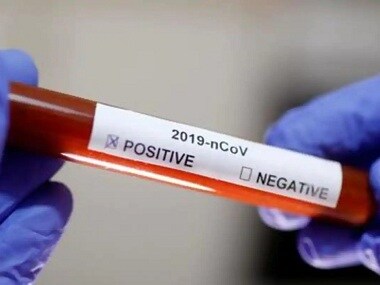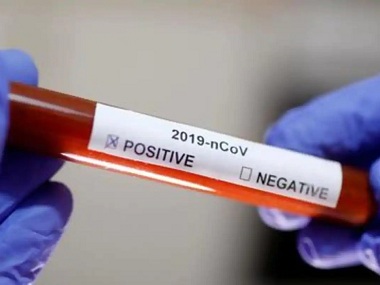A press briefing on the actions taken, preparedness and updates on COVID-19 was held at 4 pm today. The Joint Secretary, Union Health Ministry, Lav Agarwal addressed the media and said that the lockdown was the country’s greatest defence against the disease. He added that the country took 12 days to go from 100 to 1000 cases - in the same time period, other countries saw cases go up to as many as 8,000 cases. He praised everyone’s efforts and contributions to the lockdown but warned that even one misstep by an individual could spark disaster and drag everything down with them. Therefore, despite early positive (albeit modest) signs, he urged citizens to remain alert and follow the guidelines laid down by the government. [caption id=“attachment_7997561” align=“alignleft” width=“380”]  Representational image. PTI[/caption] He advised people to refer to the Ministry of Health and Family Welfare (MOHFW) website for detailed guidance on the pandemic, from taking care of the elderly to disinfecting public spaces visited by symptomatic patients.
The Government’s plan
Salila Srivastava, Joint Secretary, Ministry of Home Affairs spoke of the Centre’s crackdown in enforcing the lockdown and the states’ responsibility to seal borders and prevent migrants from crossing over. Under the Disaster Management Act, District Magistrates and SSPs (Superintendent of police) are personally responsible for the smooth functioning of the lockdown. This includes shelter and provisions for all those affected by the migrant exodus crisis as well as a 14-day quarantine for all those who have travelled in groups after hearing of the lockdown. Further, the government is appealing for citizens to stand in solidarity; employers have been told to pay salaries despite the lockdown, and landlords have been asked to not evict those who can’t make rent this month. There was also a mention of supply chain issues, and the MHA spokesperson said that the government was taking steps to iron out these problems, but didn’t offer further comment.
11 empowered committees
Lav Agarwal spoke of the 11 empowered committees constituted late last week to provide expertise on the management of the pandemic. The responsibilities of these committees range from case management and community mobilization to human resources, capacity building, medical equipment and logistics. Many public institutions such as the Ministry of Skill Development and Entrepreneurship will make their dorms and buildings available for quarantine and living purposes. Further, to ramp up the number of healthcare providers, AIIMS will be providing online courses as well.
No community transmission yet
Lav Agarwal stressed throughout the press briefing that India is not in the phase of community transmission yet. When asked about disease clusters, he did not name any specific places or areas but said that the government followed standard operating procedures for all confirmed cases; travel history is taken and contact tracing is done, and extra precautions taken in ‘containment zones’. He acknowledged that there are some cases (a very small number, he stressed) where the route of transmission has not been ascertained - but put this down to incomplete contact tracing. For now, there is some local transmission, he added. Local transmission implies locally acquired cases or small clusters within families.
‘Testing still below 30% capacity’
The ICMR Chief, Dr Raman Gangakhedkar said that so far 38,442 tests have been conducted, with 3,501 of those conducted yesterday. This still means that the country is at 30% testing capacity right now. He added that as of today, 115 ICMR network approved labs are functional. Since the private sector got involved a few days ago, it has conducted 1,343 tests, averaging around 420 a day.
‘Very small percentage falling seriously ill’
Lav Agarwal added that around 80% of those who get COVID-19 recover with hospitalization. A very small percentage of those who are hospitalized require ICU treatment. Currently around 20 ICU beds are being used by COVID-19 patients. However, even a small percentage of seriously ill people can add up as the number of cases go up, which is why the government is trying to increase the number of available ventilators and operators. For now, the government is relying on a domestic firm in Agra to provide 10,000 ventilators by the second week of April. There are also talks with Chinese suppliers for an additional 10,000 ventilators. Bharat Electronics Limited has also been asked to collaborate with other domestic manufacturers to bolster supply by a further 30,000 units.
No comments on extending the lockdown
The Cabinet Secretary Rajiv Gauba had said earlier that there were no plans to extend the national lockdown. The panel refused to comment on the duration of the lockdown, maintaining that no further clarification of the Cabinet Secretary’s comment was required. For more tips, read our article on How COVID-19 spreads_._ Health articles in Firstpost are written by myUpchar.com, India’s first and biggest resource for verified medical information. At myUpchar, researchers and journalists work with doctors to bring you information on all things health.


)

)
)
)
)
)
)
)
)



